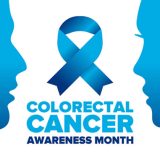

Describing malignant (cancerous) cells in breast tissue, everyone knows someone affected by breast cancer. Some of us may know quite a bit about this illness, but there are plenty of unknowns regarding breast cancer prevention and treatment.
Statistically, the numbers are disheartening. According to the National Breast Cancer Foundation:
- Breast cancer is the most commonly diagnosed cancer in women.
- Breast cancer is the second leading cause of death among women.
- One in eight women will be diagnosed with breast cancer in their lifetime.
Although there is still much to learn about this common disease that affects both women and men, below are five lesser known facts about breast cancer:
- Socializing reduces breast cancer risk – In a University of Chicago study published in the July 2013 edition of Cancer Prevention Research, researchers reported that lonely women may be at greater risk for breast cancer. According to study author Suzanne Conzen, MD, professor of medicine at the University of Chicago, “We found that exposure to the stress of social isolation leads to reprogramming of genes in fat cells in the mammary glands. These fat cells then secrete substances that cause nearby pre-cancerous epithelial cells to proliferate more rapidly, accelerating the development of breast cancer. This local effect of fat cells in the breast was completely unanticipated.”
- Breast cancer rates are finally dropping – In recent years, there has been a gradual reduction in female breast cancer incidence rates among women aged 50 and older. Experts assign this decline to a reduction in prescriptive hormone replacement therapy (HRT) after menopause. Following the Women’s Health Initiative revealing that HRT increased breast cancer risk, physicians reevaluated their approach to treating menopausal symptoms. While stopping HRT may have reduced breast cancer incidence, properly trained doctors who specialize in bio-identical hormone therapy and regularly monitor their patients have had much success without the breast cancer risk.
- Time is of the essence – Some illnesses involve a wait and see approach to settle on a treatment, but not breast cancer. In most cases, early detection and treatment of breast cancer equates to a very high survival rate. According to estimates, 96 percent of women who detect their cancer early enough will be cancer-free in five years. Arthur Rossof, MD, an oncology specialist and the national medical director on Breast Cancer Treatment and Prevention for OptumHealth Care Solutions states that: “Receiving the right treatment for breast cancer early on is critical in the fight against breast cancer.”
- Secondhand smoke is a major culprit – According to findings presented at the Third AACR Conference on The Science of Cancer Health Disparities in 2010, women who do not smoke but are exposed to secondhand smoke are at three times higher risk for breast cancer than non-smoking women not exposed to passive smoking. The researchers also found a significant increased breast cancer risk in women who began smoking between puberty and the birth of their first child.
- Being active and fit is a great breast cancer preventative – We’ve all heard exercise and weight loss paves the way towards good health, but the evidence is especially compelling for breast cancer prevention. Regular exercise can reduce breast cancer risk by a minimum of 25-30 percent. Experts suggest this is because exercise reduces stress, calms inflammation and boosts how the immune system responds to cancerous cells. Along those same lines, maintaining a healthy weight dramatically reduces the likelihood of getting breast cancer – by up to 250 percent. This is likely because fat cells pick up and store estrogen, a hormone known to fuel most breast cancers.
There is still a lot we don’t know about this most commonly diagnosed cancer in women. Until we learn more about how to prevent, detect and treat breast cancer, we are left with piecing together the available information. Now, the effect of secondhand smoke, socialization and stress, bio-identical hormones and HRT, exercise and weight control, and the value of moving quickly with diagnosis and treatment is no longer a mystery. As such, individuals can have a tad more control in whether or not they become a breast cancer statistic.




